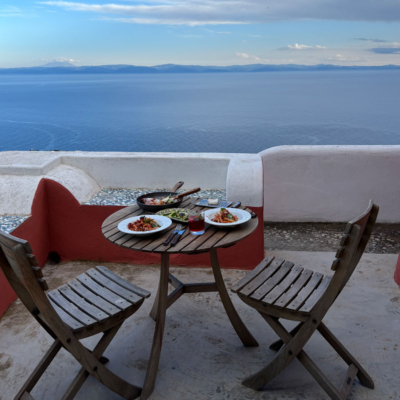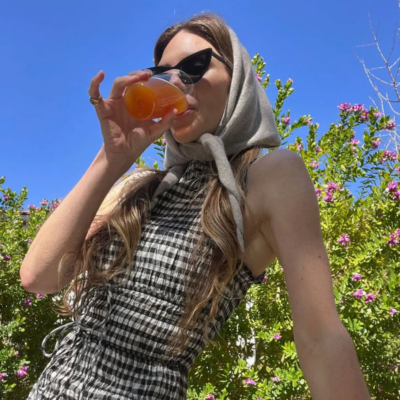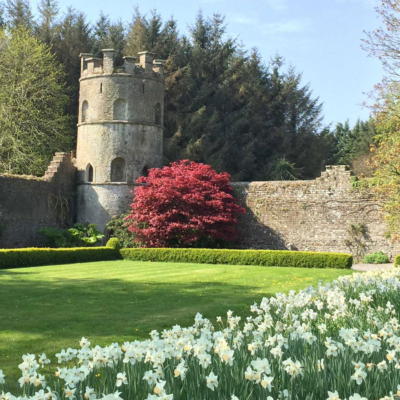Cathy Sweeney is a short fiction writer and teacher from Dublin. As a child, her family moved from Ireland to London to Zambia, before finally settling in Greystones. Since succumbing to the craft over a decade ago, her critically-acclaimed work has been published in such prestigious journals as The Stinging Fly, The Dublin Review, Egress, Winter Papers, Banshee and The Tangerine, and broadcast on BBC Radio 4.
Sweeney’s eagerly-awaited debut book, Modern Times, is a collection of 21 dreamlike stories of varying length and form. Her offbeat rhythm scoops you up from the first word, with effortless humour and moments of palpable poignancy while ordinary people go about their daily business, relationships, break-ups, affairs, compromises, disappointments and regrets. To the naked eye, one might say the author is a surrealist, but her fable-like images only contribute to a biting truth. One of the most appealing aspects of her storytelling is that she doesn’t wrap her endings up in neat little bows. They are what they are, much like life – the seams can hang loose without need of a conventional conclusion. Just some of the characters we meet in Modern Times include a mother who places her child in the freezer to save on crèche fees, a father who makes films without a camera, and a woman who gifts a sex doll to her husband.
Kevin Barry described Sweeney’s writing style as “a senselessness that makes perfect sense” during The Stinging Fly Podcast, while Danielle McLaughlin has called her work “magnificently weird, hugely entertaining, deeply profound.”
Cathy Sweeney lives in Dublin. She is currently working on her first novel.
Modern Times (€15) is published by The Stinging Fly Press and available from all good bookshops.

On home
For years I lived in Bray, a seaside town full of character. But right now I am in a state of transition, planning a move out of Dublin city, where I currently live, to Leitrim. I am very fond of the city, but it is not possible to pay exorbitant rent and work as a writer. Also, I relish change. I don’t have any connections to Leitrim but ever since I read John McGahern’s memoir the austerity of the landscape has held a fascination for me. At the moment I am enjoying day trips, scouting around, getting the feel of the place.
On roots
I was born in Dublin but when I was about a year old my parents moved to Longford (where my sister was born), then to Cork, London, Zambia for three years (where my brother was born), finally settling in Greystones where I had my ninth birthday. I had been to lots of different schools by then and spoken in various accents. I have no simple answer to the question “Where are you from?” Moving between contrasting worlds – the bright, sensuous, world of Africa to the more confined world of a newly built housing estate in Greystones – heightened my powers of observation, but also left me with a fundamental understanding of reality as something that can change, and quickly, something not fixed.
On early reading
Both parents read bedtime stories to us when we were children. My mother preferred nursery rhymes and imaginative poems like “The Owl and the Pussycat”, “Wynken, Blyken and Nod”, that kind of thing. My father selected books that held some interest for him. I remember a Ladybird version of the life of Marco Polo that had us asleep in no time. The first books I got obsessive about were the Louisa May Alcott series. I had my mother’s old copies of Little Women, Good Wives and Little Men, and ordered Jo’s Boys from the library in Greystones.
On family
As with any writer…too much to account for. The changes in life circumstances in the last fifty years have been dramatic in Ireland, especially for women. My maternal grandmother had eleven children. And yet the imprint of nature and nurture leaves its stubborn trace from generation to generation. The link between a writer’s personal life and their writing is a deeply complex one.
On creating
It was not until I was in my late thirties that I started writing. At that time I was experiencing profound changes in my world view and writing seemed to be the only way to express that. I am lucky in that I don’t need particular circumstances in which to write. My favourite thing is be trapped between spaces – on a train, in a waiting room, in a coffee shop – with a notebook and pen. I find it easier to be still when the world is moving around me.
The link between a writer’s personal life and their writing is a deeply complex one.
On independent bookshops
I love Books Upstairs on D’Olier Street. It has excellent low volume background music, unobtrusive but helpful staff, well-stocked shelves, an old-world café, and a sliding door beside the Theology section that takes you up narrow stairs to the second-hand section. What more could you want?
On her “To Be Read” pile
My reading is very random and I am a great magpie of other people’s books. I often have a few books on the go at the same time, pencils stuck in them as bookmarks. At the moment I am reading Happening by Annie Ernaux, Imaginary Cities by Darran Anderson and Essays by Lydia Davis. I’m also rereading the novels of Albert Camus hoping to absorb something by osmosis. The writers I love most are those that do not consider stories to be the source of truth because they know that truth is a tricky thing, and not something that can easily be contained between “once upon a time” and “the end”, like meat between two pieces of bread. If there is something akin to “truth” in a story, it is like the truth that comes from dreams, you understand it, but if you try to analyse it, it runs through your hands like sand. The universal stories of the world – myth and legend and fairy tale – are like this.
On escape
I am not a great fan of the concept of escape. There is no way out of life (other than death). I find peace to be elusive a lot of the time, but when I have it, it mostly comes from simple things…a nice meal, reading a good book in the bath, lounging in front of an open fire.
On Modern Times
I have Declan Meade of The Stinging Fly to thank for mining the collection out of the manuscript I sent him, and for coming up with the title Modern Times. I don’t think I am the best judge of my work, it is too close to me, and that is why it is so lucky when a writer finds an editor/publisher who “gets” them and has the skill to turn their writing into a book. Along the way, I have also received invaluable help and encouragement from other writers, both men and women.
On short fiction
I love short stories because of their intensity, their ability to knock you sideways with just one punch. I reread my favourite short stories all the time, never ceasing to be thrilled: “Gooseberries” by Chekhov, “Wants” by Grace Paley, “The Judgment” by Franz Kafka, to name only three. I like writers who don’t have time for narrative arcs, epiphany, or characters who work things out and find closure; writers who don’t offer a version of life in which people get what they deserve. I have a stronger appetite. A great short story will entice you back to read it again, and again, and again; creating, over a lifetime, a relationship between you and it, in which, as you change, so the story changes too, reading you, in the end, as much as you read it. For me one such story is Yuri Buida’s “Sinbad the Sailor.”
On what’s next
I am writing a novel. In it the protagonist goes on a journey, though a very unglamorous one that involves killing time in service stations and shopping centres and ferry terminals and so on. This suits me fine. I enjoy being out and about with a notebook and pen, drinking too much coffee, staring at strangers, wondering about their lives, trying to catch the moment between moments. This is the fun bit…at some point I’ll have to stay still and try and put it all together.
LOVETHEGLOSS.IE?
Sign up to our MAILING LIST now for a roundup of the latest fashion, beauty, interiors and entertaining news from THE GLOSS MAGAZINE’s daily dispatches.










